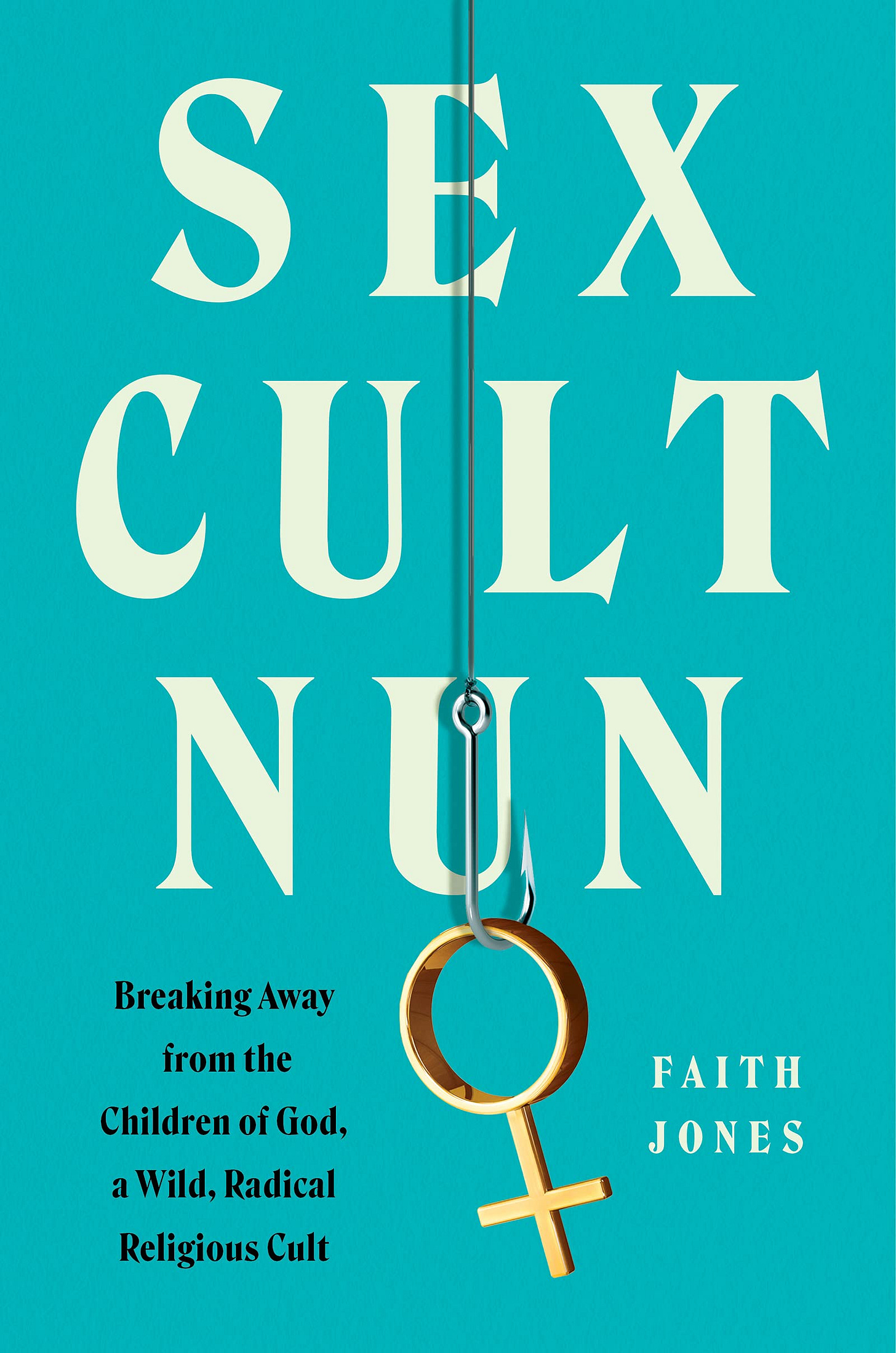Sex, Cult, Nun
A Book Review of the Memoir by Faith Jones
I was browsing the new books from the library when I saw an eye-catching blue cover and read “Sex”, “Cult”, and “Nun.” and I didn’t even read the synopsis, I immediately checked it out. I wish I had read the book flap…
Sex, Cult, Nun by Faith Jones turned out to be like the memoir Educated, which while being an amazing book, is hard to read. Just like Educated, the memoir Sex, Cult, Nun follows a woman from childhood to adulthood as education slowly but drastically changes her perspective about the culture she grew up in. These two memoirs are extremely similar when summarized: both women grew up in fringe communities where religious beliefs policed their social interactions and education. Both books are very interesting to read; however, I don’t think that Faith Jones is as talented a writer as Tara Westover.
The writing style in Sex, Cult, Nun is very dry and matter of fact. It is written in the present tense, but it reads like the first draft was in the past tense and the editor did Ctrl-F, and replaced all the -ed’s with -e or -es. The flow of the book is strange and some of the choices point to lazy writing. For example, the book begins with a 25-page historical overview of the founding and demise of the cult, Children of God. The author includes the introduction because she believes that her story can be read in two ways “as a story about a cult or a young women’s personal story.” The “or” should be switched to an “and” as Sex, Cult, Nun is intrinsically about a cult and is a coming of age story. By having the historical overview at the beginning of the book, there is an attempt to separate the intrinsic connection between Jone’s childhood and the cult. As a result, the bulk of the memoir provides minimal context about the Children of God organization overall; instead, the story relies on the historical overview to provide background on the characters, places, and major events that do not directly occur to Jones.
The book follows Jones throughout her childhood (80% of the book) and into her life as an adult life, where the story begins to feel rushed. The end chapters are incongruous with the rest of the book because they stop talking about events and instead talk about abstract concepts and ideas, which had been noticeably absent up until that point. Instead, the last chapters read like an essay or a talk on self-fulfillment and self-realization. They contain little memorable content, except a nod to the author’s TED talk and her personal revelation that “I own me.”
In Sex, Cult, Nun there are multiple instances and descriptions of sexual abuse against children. Faith experiences several instances of rape but due to her indoctrination into the Children of God, she isn’t able to understand that it is rape or abuse as it occurs. As a reader, it was difficult to read because the scenes were described with gratuitous detail and with the same tone as the rest of the book. The style was too consistent throughout the book. When the same explicit and neutral tone was used to describe both her childhood playtime and her childhood molestation, which began at the age of 10, it was horrifying. Why was it written like this?
My best guess is that it emphasized the underlying depravity of the cult and the brainwashing that led her and others in the community to believe their behavior was acceptable. Perhaps, the juxtaposition was intentional, but it didn’t seem that way as the book doesn’t have a strong artistic presence and is missing , overall, a strong style or rhythm.
I think there is a contradiction between the author’s intentions, “I’m doing this for those who have been oppressed, manipulated, and abused and need the words to stand up for themselves,” and the way the book is marketed. I felt bamboozled after getting just 100 pages of this memoir. The cover and the book flap are trying to sell sex and excitement. But that is not this book. This book is not sexy; it is a very not-sexy coming-of-age story and it plays into our culture’s current obsession with cults. Unfortunately, the marketing worked on me but the author’s motivational aspirations fell flat.
The Don’t Call Me Ishmael Official Book Rating, Sponsored by Whales Who Don’t Think They Should Make a Joke About This One (WWDTTSMAJATO):
2/5 Whales. It blows.



